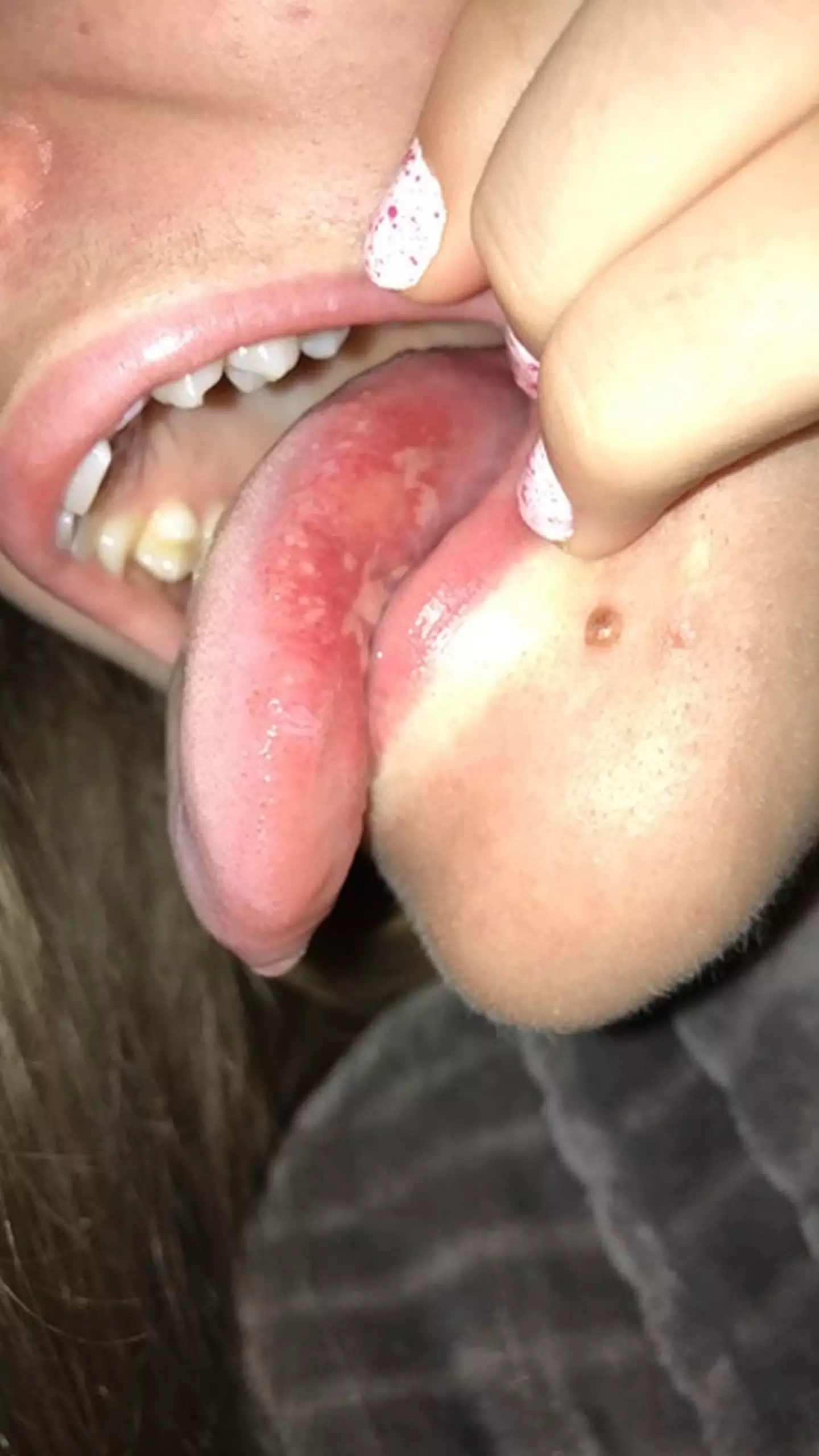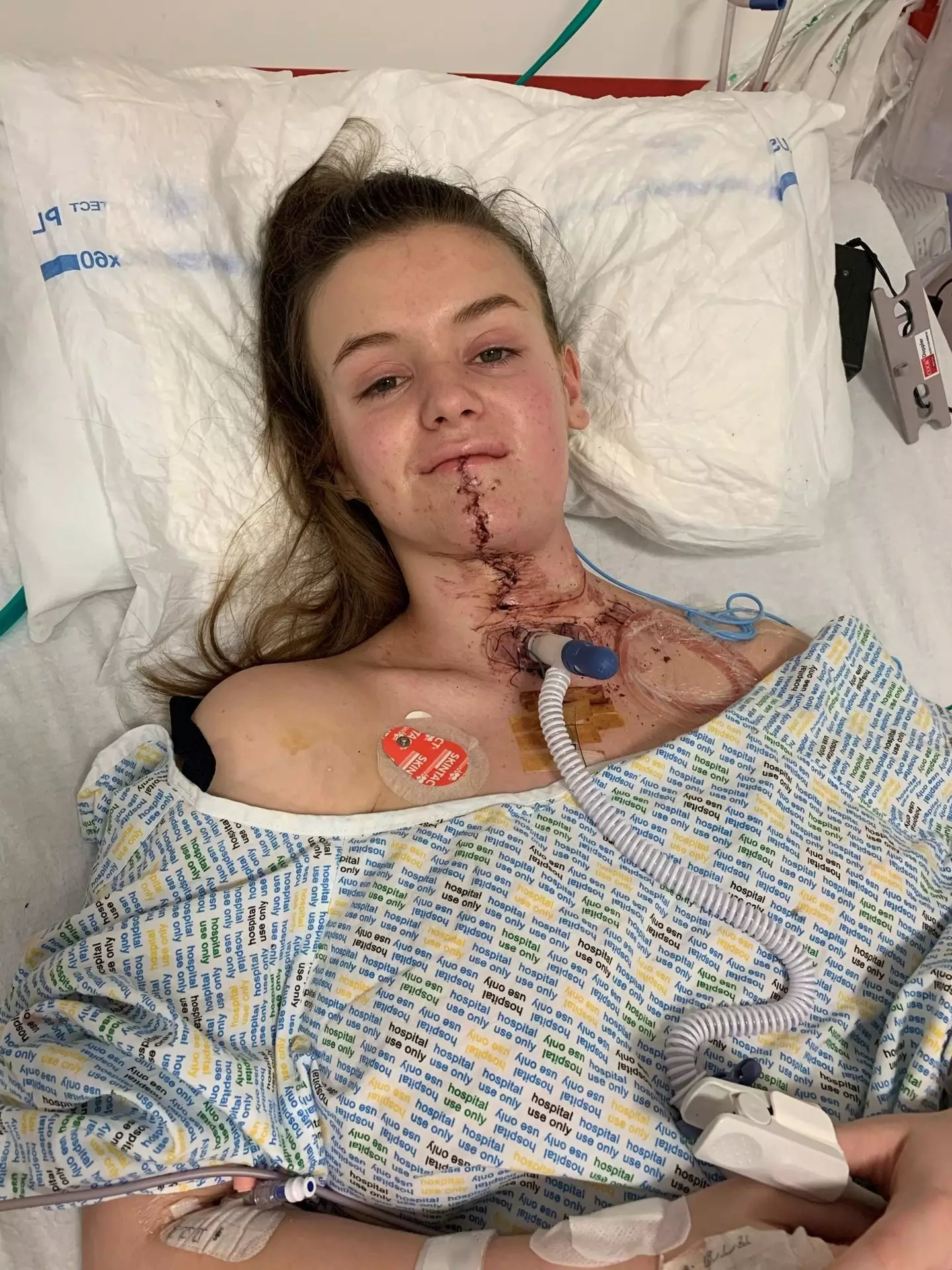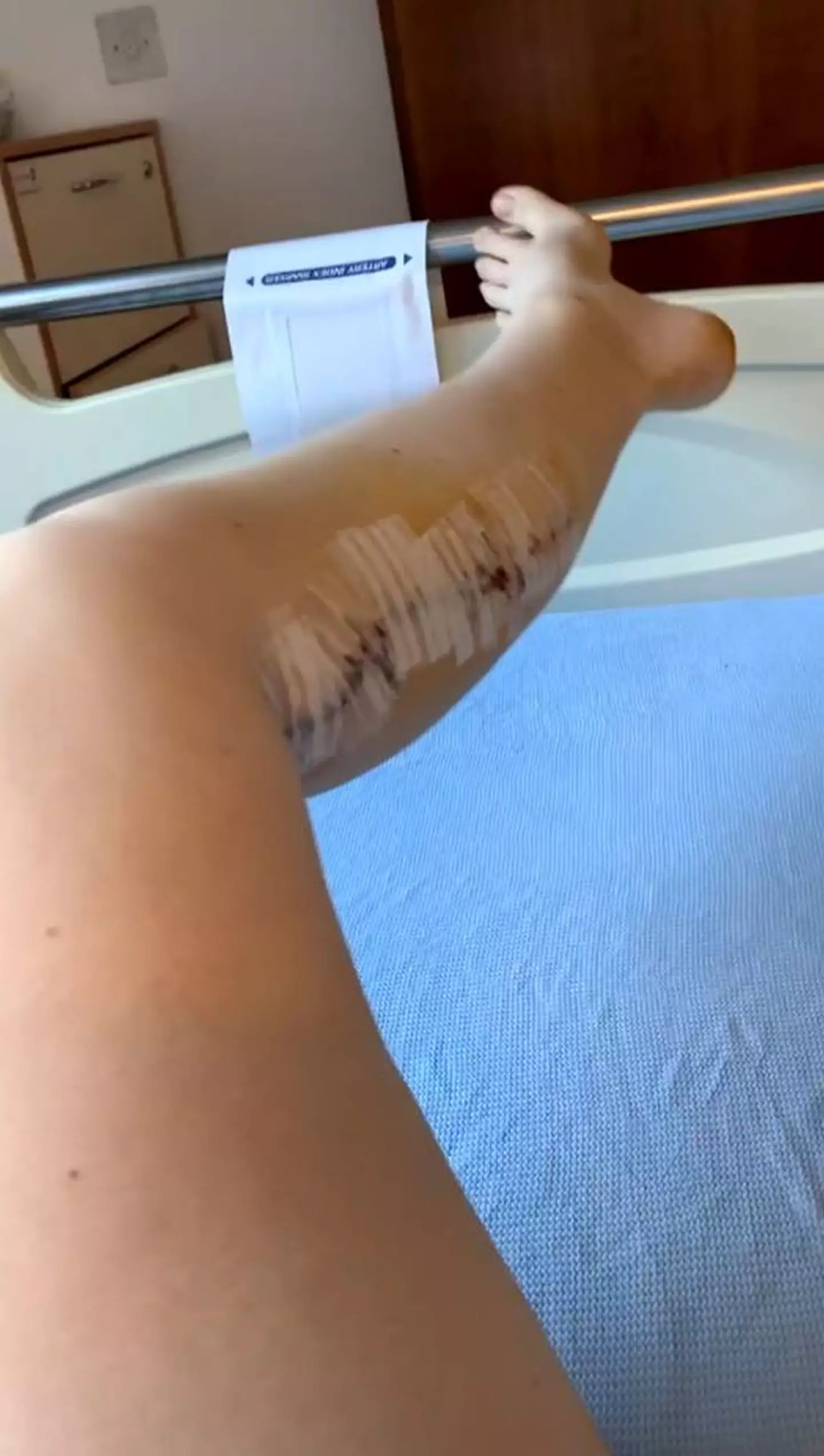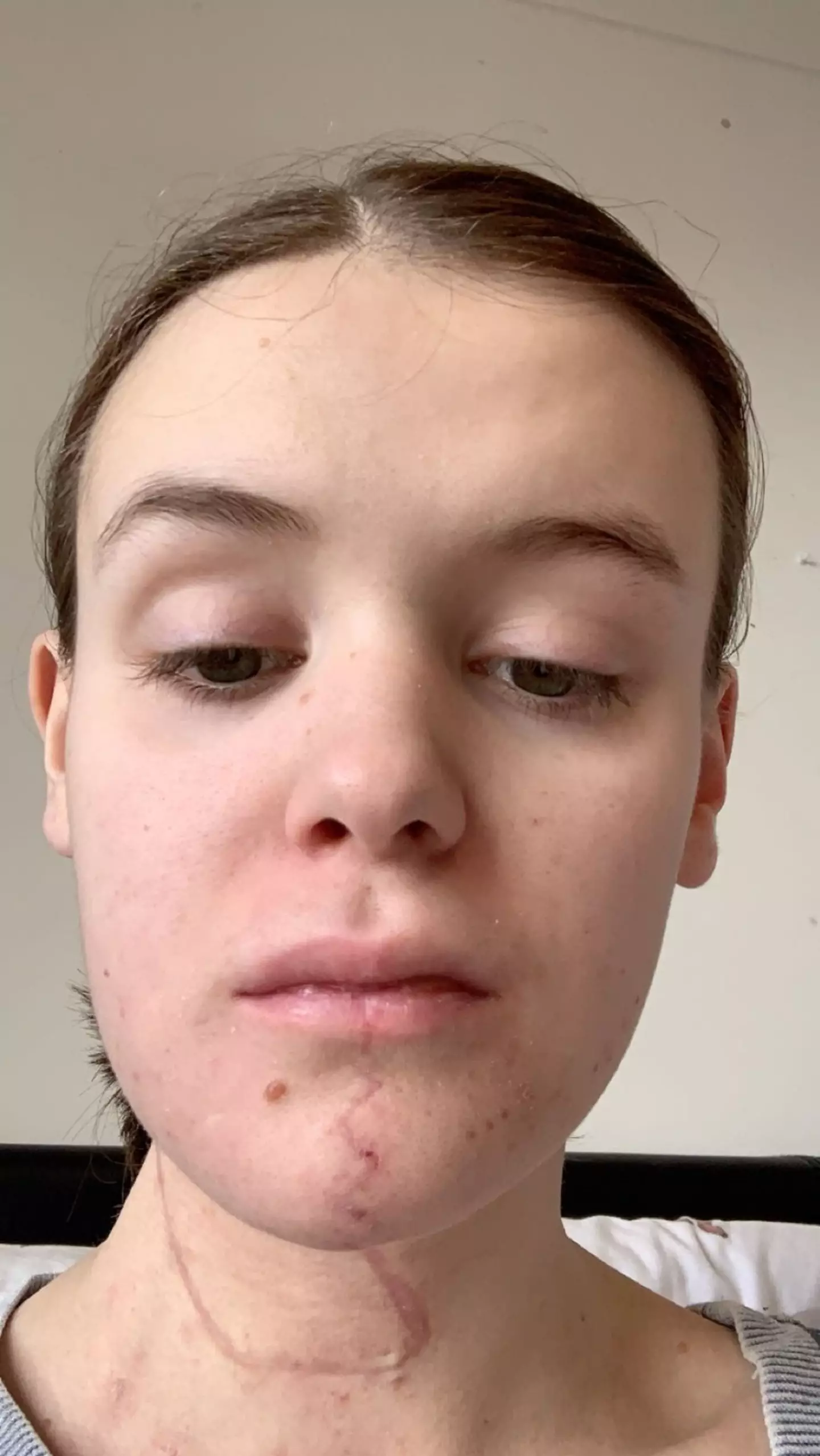A student who thought her mouth ulcers were down to feeling stressed from exams had to have two-thirds of her tongue cut out after it turned out to be cancer.
Rachel Morton, 21, started getting ulcers in 2019, finding they were getting progressively worse and eventually covered an entire side of her tongue, which became misshapen.
Having also been extremely tired and experienced dry, red and swollen lips and bad tonsil aches, and found the left side of her face felt abnormal, Morton had various GP appointments to get to the bottom of the issue.
Advert
After being referred for a biopsy in November 2020, the medicine student was diagnosed with tongue cancer.

Morton had to have 10 different surgeries in one 16-hour sitting to break her jaw, remove two-thirds of her tongue, lymph nodes, as well as blood supply as it can carry malignant cells.
Surgeons then used muscle and blood vessels from her thigh to reconstruct her tongue and the arteries and veins in her neck.
And the journey wasn’t over there, either, as she then had to relearn how to walk and talk, also having to do two rounds of chemotherapy and 30 rounds of radiotherapy.
Six months later, Morton was finally given the all-clear in 2021, and is now pursuing a career as a psychiatrist, while also serving as a member of the Teenage Cancer Trust youth advisory group.
She said: "I had tongue ulcers over my 18th birthday, I couldn't really drink alcohol because they were so sore.

"When I'm a bit tired, run down or stressed with exams I seem to be a bit prone to ulcers anyway, so I kind of just put it down to that and starting university.
"I went to the doctor and I'd been given some pain relief tablets, Bonjela and stuff like that.
"I still had them a year later but I wasn't too worried about it. I had so much other stuff going on in my life and it wasn't really at the forefront of my mind.
"At the start it was a couple of ulcers but over the course of a year they got bigger and spread, and covered the whole side of my tongue. They were really red, raw and painful.”

Morton, from Edinburgh, said she was being investigated for a range of conditions, such as hemochromatosis - an inherited condition where iron levels in the body slowly build up over many years.
But after a biopsy she was diagnosed with tongue cancer on 18 December 2020.
When she got her diagnosis, Morton said the doctor told her he’d never spoken to someone as young as her with tongue cancer.
“He said he's only ever treated those over the age of 60, usually male, that have smoked and drank their entire life,” she said.
"As he was telling me that I had cancer, I don't remember this but my mum does, he had this rash coming up as he was trying to tell us because he was just so uncomfortable. I felt sorry for him because it was a horrible situation.
"It was a really surreal experience. You go into survival mode. You think 'ok, this is reality, this is what's going to happen, and I'll get through it'."

Morton now has several scars including a 'Harry Potter-like' one on her chin, one from a tracheostomy, up her neck, stomach, and down her leg.
But she’s been embracing them, seeing the marks as a part of who she is and what she’s been through.
"I feel proud of my body for being able to come through this,” Morton said.
“My scars are a part of me and they will be for the rest of my life, and it shows how resilient, strong and powerful my body is, and I want to reflect that within and do myself justice.”
Morton is now working with the Teenage Cancer Trust, having also managed to fundraise £4,500 for the Little Princess Trust with some friends.
Mouth cancer, also known as oral cancer, is where a tumour develops in a part of the mouth – whether it’s the tongue, cheek, roof, lips or gums.

Tumours can also develop in the glands that produce saliva, tonsils at the back of the mouth, and the pharynx, but these are less common.
According to the NHS, the symptoms of mouth cancer include: mouth ulcers that are painful and do not heal within several weeks, unexplained, persistent lumps in the mouth or the neck that do not go away, unexplained loose teeth or sockets that do not heal after extractions, unexplained, persistent numbness or an odd feeling on the lip or tongue, white or red patches on the lining of the mouth or tongue and changes in speech, such as a lisp.
Things that increase your risk of developing mouth cancer also include: smoking or using tobacco in other ways, such as chewing it, drinking alcohol and infection with the human papilloma virus (HPV) – HPV is the virus that causes genital warts.